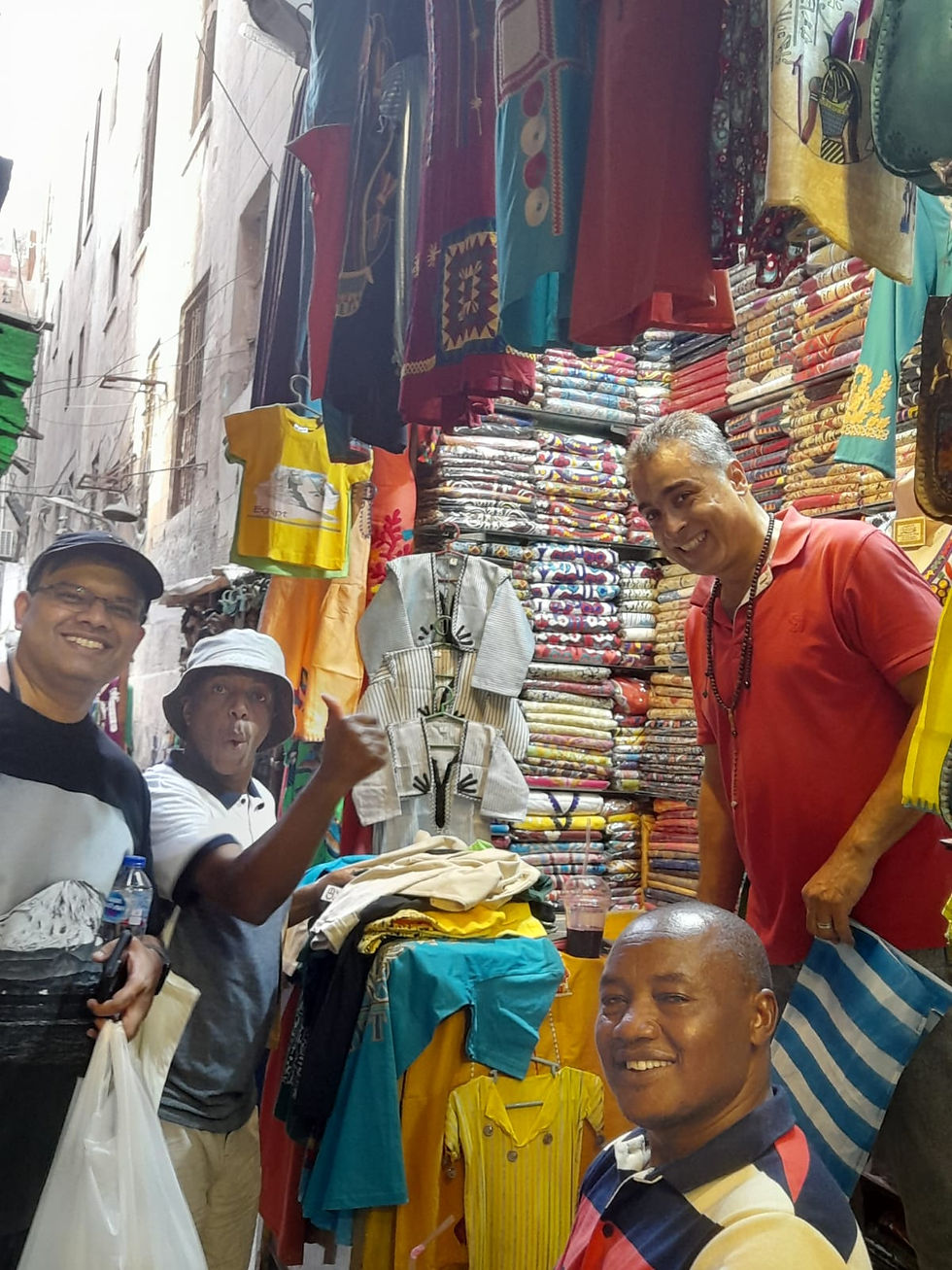Mission Posture
- Linda Abwa
- Aug 20, 2024
- 4 min read

One of the many advantages of working for CMSIreland is getting to connect with people living in far-flung places. Whether it’s joining in fellowship with folk across this island or communing with churches further afield, it’s people who are at the heart of our organisation. That’s where the love of God is seen and experienced in daily life. And while we have our particular partners, whom we know and love, we also have the opportunity to plug into the wider CMS network. The network meet in person for their annual conference and this year I was the representative from Ireland.
Meeting in Cairo, there was an abundance of learning opportunities during the 3-day conference. Each person present had valuable insights from the world of mission, insights which helped me reflect upon my own personal walk with God at home in my ordinary, everyday life.

It was exhilarating to hear about church planting movements by workers in Southeast Asia, prompting me to ask myself how intentional I am about sharing the hope that I have in Christ with people that I meet every day. It filled me with hope to hear of creative outreach to young people in England through youth led church, making me more thoughtful in prayer for my local area. The New Zealand Church Mission Society shared quietly and matter-of-factly about their hard work to explore Christianity and colonialism with their Māori brothers and sisters in Christ. Their gentleness and preparedness to work through pain and mess has led me to read more about reconciliation and be open to new articulations of shared history in the places where I live and work.
As each person shared, I found my hope grow and my desire to be useful for God's kingdom deepen. It shone a light in a shadowy, poorly formed, but deeply felt part of my faith life; the desire to authentically share the steady assurance that has been my experience of being in relationship with God, through Christ. Because, whilst the shared stories I heard in Cairo demonstrate the vast global mission movement of the God who first called Abraham to leave his home to be a blessing to the nations, they also spoke to me of how to live daily in the posture of mission.

The mission folk I met in Cairo intentionality, creatively and prayerfully follow God’s leading. Theirs is a particular way of life, of humble service that can easily be lost in our goal-orientated, target-driven culture that values striving and success above all else. And if we think we are immune to this in the church, then take a moment to look again. How often do we measure a church’s health in terms of numbers, body count, pounds? Even our language betrays us in our eagerness to ‘triumph’ in God's glorious work.
One story summed up this alternative way of being particularly well. It was shared by an Australian mission partner who told us about her long, laborious integration into a new community, in a new culture, where she had been sent to minister.
The secret to connecting with her new neighbours, she said, was to allow herself to be needy.
Instead of studying quietly in a room until her language skills were perfect before emerging, she made herself go through the experience of daily language learning in the community. When people laughed at her mistakes, she knew she was becoming part of them. Instead of heading off to a Western style supermarket to buy what she wanted, she let her ignorance of local produce become a moment of connection with those who had to help her learn how to live. And when the local Christians wanted to buy her a washing machine she accepted it, even though her finances were enough. Why? Because her acceptance of this generous gift expressed far better than any words, that she needed their fellowship and respected their resourcefulness. The connections made a space for authentic sharing of her faith. Her gentleness made space for Jesus to minister through her. Her willingness to receive made her a friend instead of a foreigner with a message.
In the missional part of me I have sought to have a servant heart, but these stories forced me to recognise that my idea of service might have been so 'selfless' that it seemed arrogant and self-sufficient. My eagerness to put the other first may well have blocked reciprocal relationships of trust, where real needs could be shared and genuine service offered. My desire to give, give, give rather than ever receive could have left many out in the cold when they could have been part of my community.

So, I’ve come away from the CMS network meeting with lots of questions, questions I am asking myself as well as all of you – challenges for us here, in Ireland. How can we be intentional, creative, prayerful and open in our relationships and in our communities? How can we 'stand up for Jesus' in a way that does not spoil another’s view of him? How might we reimagine church in such a way that the joyous wonder of sharing in the global body of Christ might come alive in our own communities? Perhaps it is time to reconsider our posture in daily life, making more space for connection and conversation.














Commenti